Bitcoin vs banking, crypto industry trends and ICO-bubble. What did they talk about at the blockchain conference in Kiev
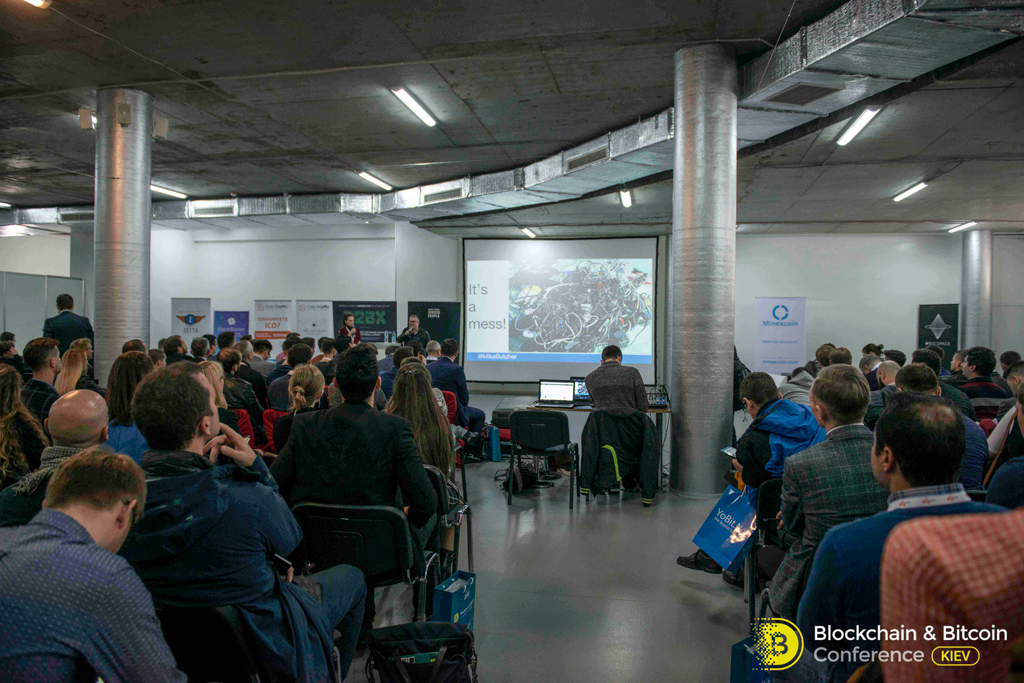
ICO - without a doubt, a bubble that will burst sooner or later; banks will have to integrate blockchain and cryptocurrency in the future; and the entire world cryptoindustry has shown unprecedented growth over the past year. Such abstracts were heard at the sixth Blockchain & Bitcoin Conference Kiev .
Headliners of the event were:
Mike Butcher is the editor in chief of TechCrunch, the world's leading portal for innovative technologies.
Marina Gurieva is the head of the CyberFund investment platform. 10 years professionally engaged in investment and business development.
Dmitrius Borisenko is the founder and head of the CoinGate cryptocurrency processing company. Entrepreneur and crypto enthusiast, who founded several of his own projects.
We introduce you to the main provisions of their speeches.
Ico: bubble or not? How to approach regulation?

Mike Butcher believes that tokensale can be resorted to only if there is no other way to raise funds for development. But if you go for ICO, then you need to do everything technically competently.
As for the state control of tokensails, then, according to Mike, to prohibit an ICO, as China and Korea did, is too extreme a move. He is confident that regulation needs to be more enlightened. As an example, he cited the Bank of England, which creates a sandbox for FINTECH startups and does not erect a framework, but only “gently smoothes” the activities of companies. But if you look at the situation as a whole, then the global ICO market is practically unregulated.
Mike Butcher noted that ICO is undoubtedly a bubble, and there can be no two opinions here. When this bubble bursts, "a lot of people get very sad." And, alas, there are a lot of scam projects on the market: because of them it becomes more difficult to identify really worthy startups.
Bitcoin vs banking. Should I wait for the merger?
Dmitrius Borisenko, Head of CoinGate, presented a report on the opposition to Bitcoin and banking.

The speaker began with a reference to the transformation of banks from institutions where money is kept, into a whole system that transfers wages, conducts transactions for payment of goods online and offline, and ensures payment of taxes. Banks have become a necessity for ordinary citizens.
But the banking system has a number of drawbacks. One of them, according to Dmitrius, is a centralized model of the device. In fact, the bank acts as a guarantor that the funds will safely reach from the sender to the recipient. And here lies a lot of obstacles and risks. The bank needs to take into account the regulatory policy of a particular state (for example, in case of cross-border payments), it is necessary to conduct an audit, there is a high risk of technical failures, human error, there are risks when turning to third parties. In the end, hackers can quite successfully crack the banking system.

At the same time, the decentralized system has a number of significant advantages. It has at least the above described risks. If you take the same transaction to transfer funds from one person to another, but in the blockchain, you can see that each member of the network is in fact the guarantor.
Blockchain in one fell swoop can solve a whole bunch of problems. But decentralized systems also have disadvantages. The main speaker, according to the speaker, is network bandwidth. If we take 2016 as an example, we can see that the number of transactions processed per second varies widely among popular payment systems. But all of them are clearly higher than that of bitcoin and even ether.
VISA - 1667 transactions / sec;
PayPal - 198 transactions / sec;
Western Union - 31 transactions / s;
Bitcoin - maximum 4.27 transactions / sec;
Ethereum - maximum 5.74 transactions / sec.
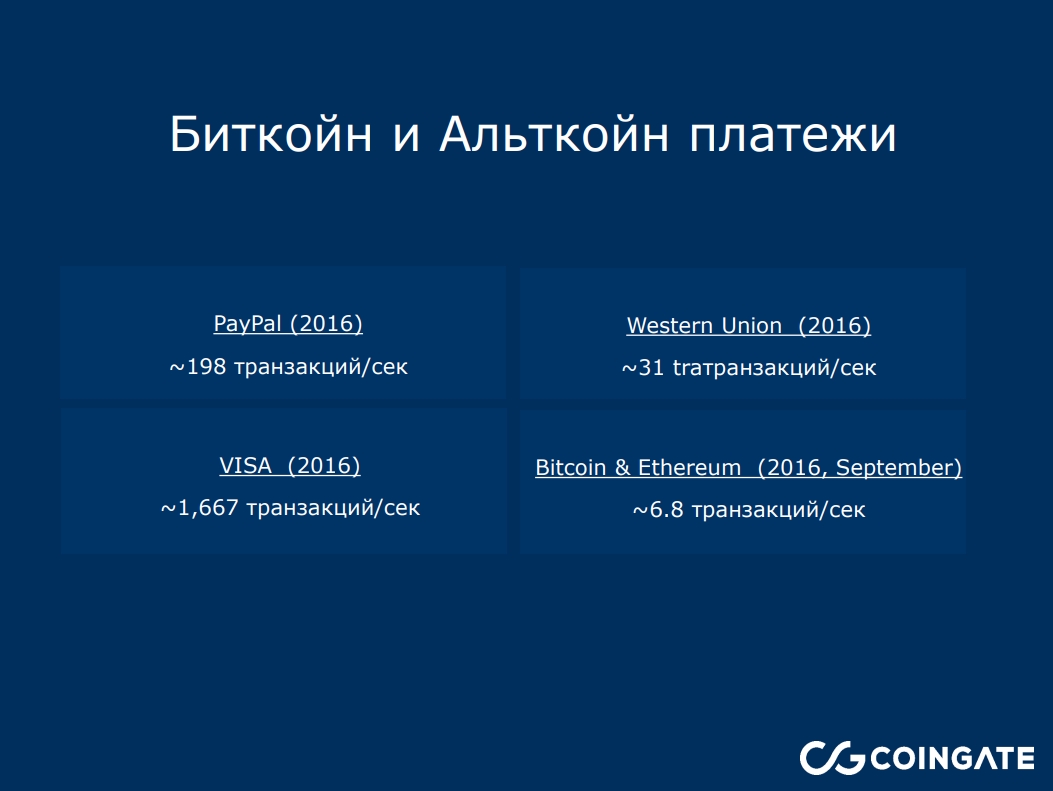
Thus, problems with the blockchain bandwidth hinder the widespread implementation of a decentralized system for the integration of currency payments processing. But current trends are such that cryptocurrencies and blockchain will only become more popular over time. And banks, in turn, will adopt new technologies and transform to the needs of the mass user. It is important to understand: this will not happen soon.
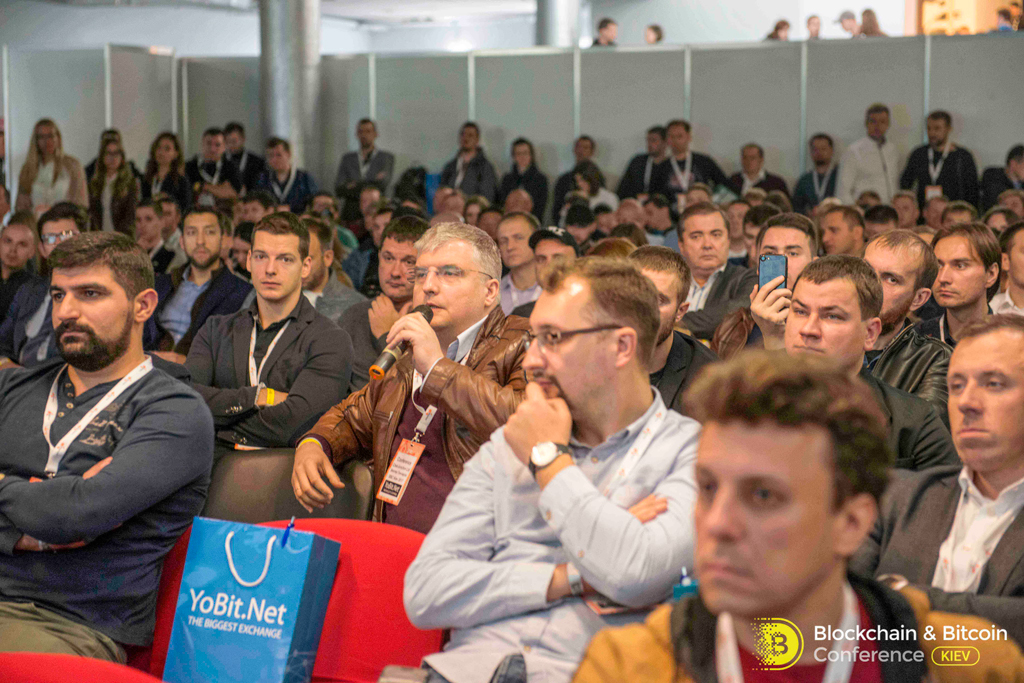
Download speaker presentation
Blockchain economics: what happened in a year?
Marina Gurieva, head of the investment platform CyberFund, spoke about trends and prospects for the blockchain-economy.
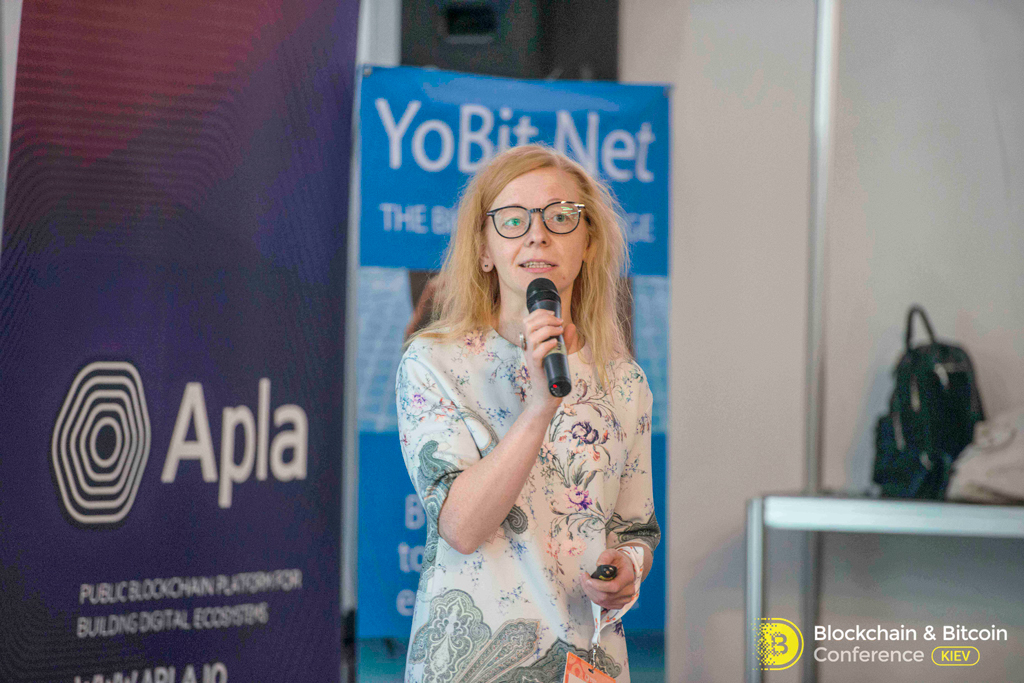
The first in her presentation appeared graphics, reflecting the growth in the number of blockchain systems and applications, as well as their total capitalization. In both graphs, it can be seen that in 2017, the industry showed a sharp increase, and the main cryptocurrencies (Bitcoin, Ethereum, Ripple) significantly gained weight.
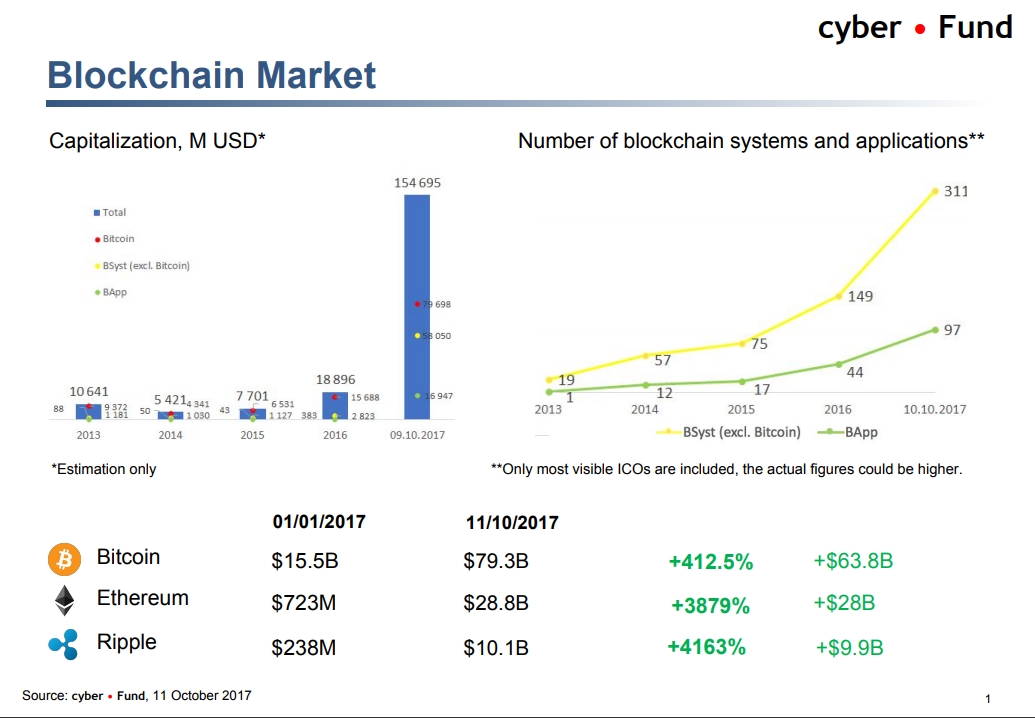
After that, Marina showed a Bitcoin chart showing the changes in value from 2014 to October 2017 and important events that influenced the cryptocurrency rate. It was followed by the analysis of the main trends associated with Bitcoin in the past 12 months (starting in 2016). The capitalization of this cryptocurrency has shown an eightfold increase, and the number of bitcoinates has doubled. At the same time, the number of daily used unique addresses increased by about 40%, and the number of transactions increased by 20%.

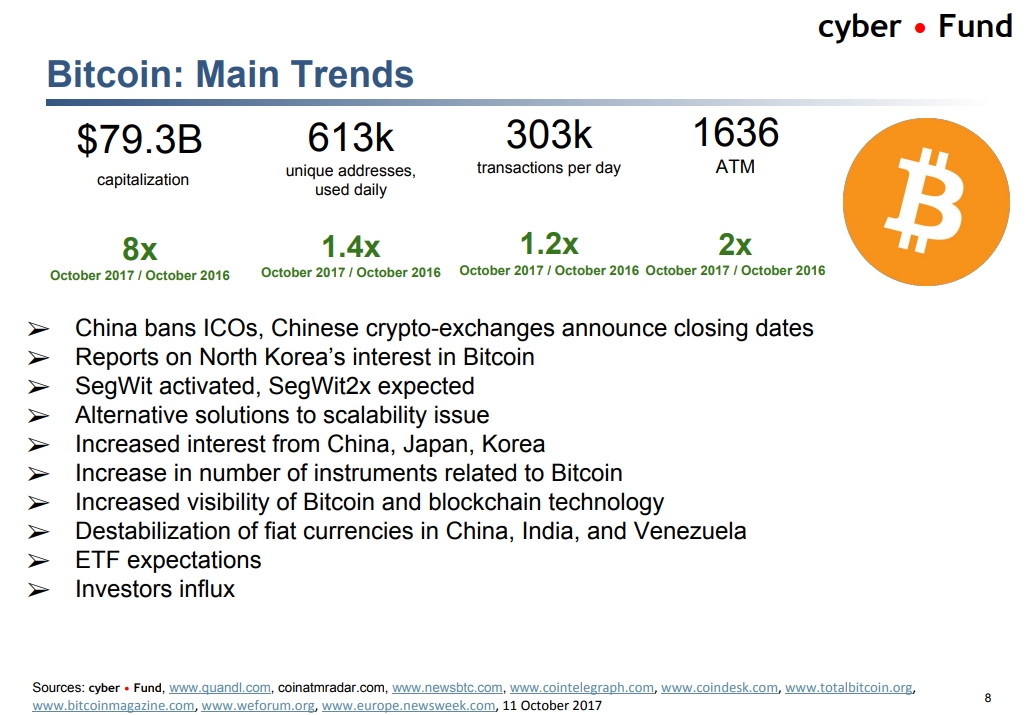
The same graphs reflected the situation with Ethereum. Is that the broadcast showed a much more impressive growth over the past year. The capitalization of cryptocurrency increased by 28.5 times (reaching $ 28.8 billion), the computational power of the network increased 33.4 times, and the number of daily transactions increased 8.4 times.
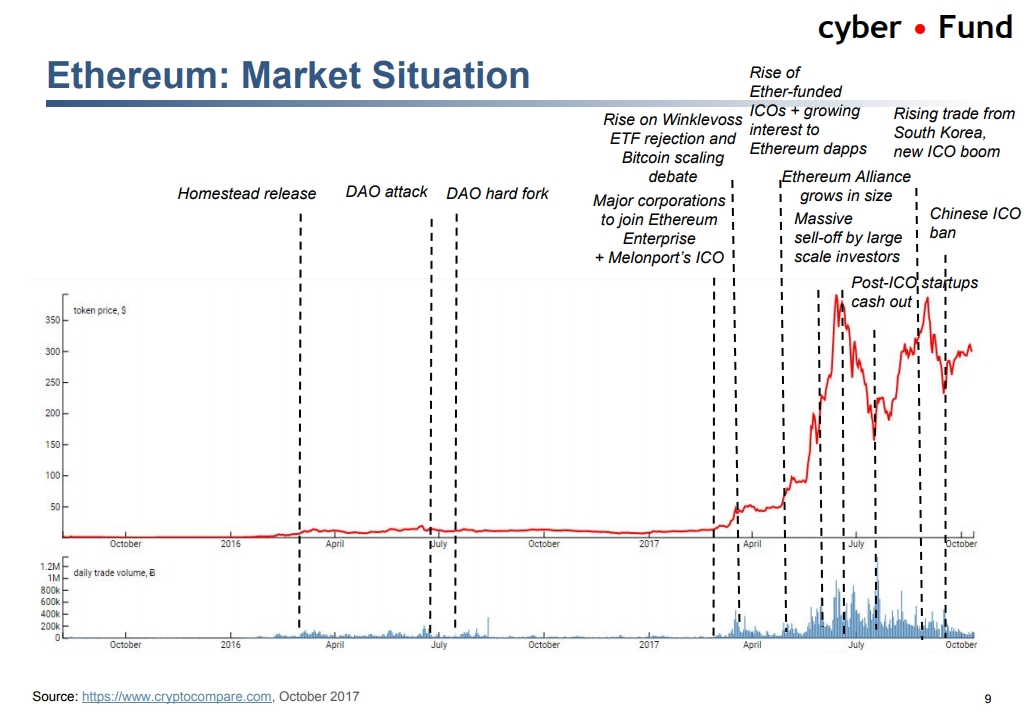
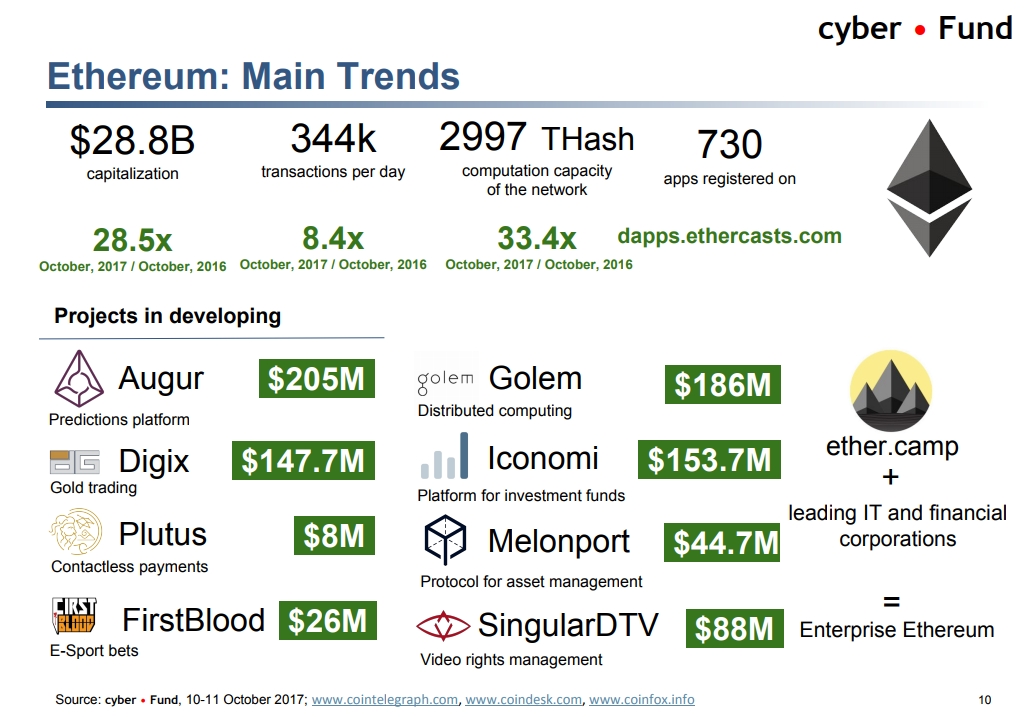
Not without statistics on ICO-projects. The speaker showed that 2017 was marked by a significant increase in tokensails. But out of 69 projects that raised over $ 10 million, 30 cannot be considered completely transparent. Transparency is the ability to check the address of the wallet specified in the ICO and see its balance.
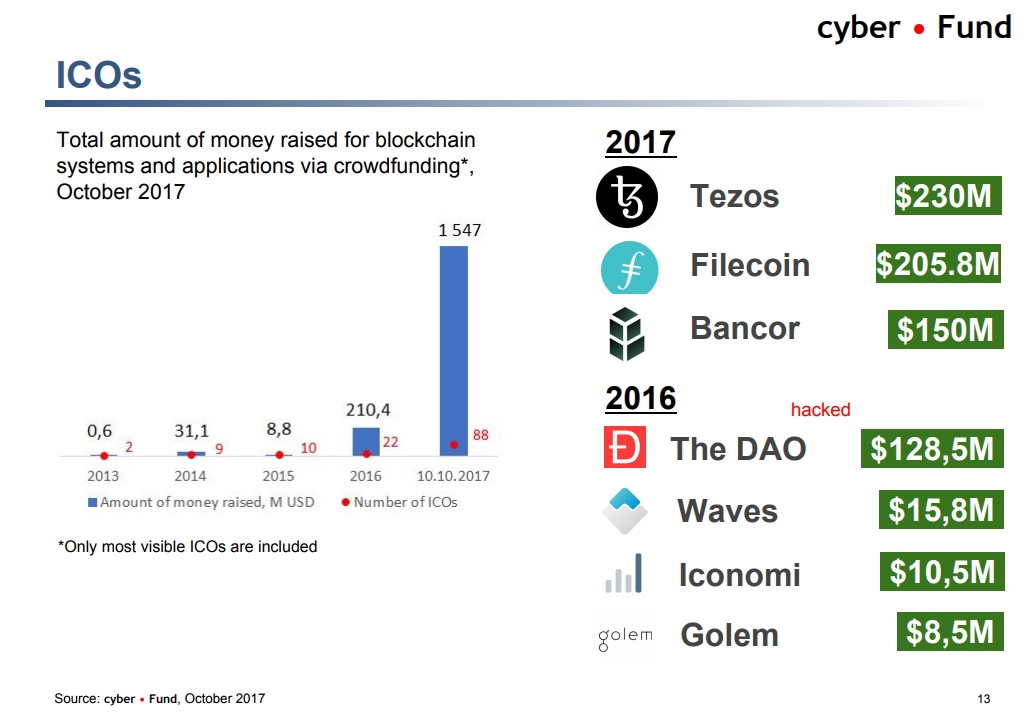
Download speaker presentation
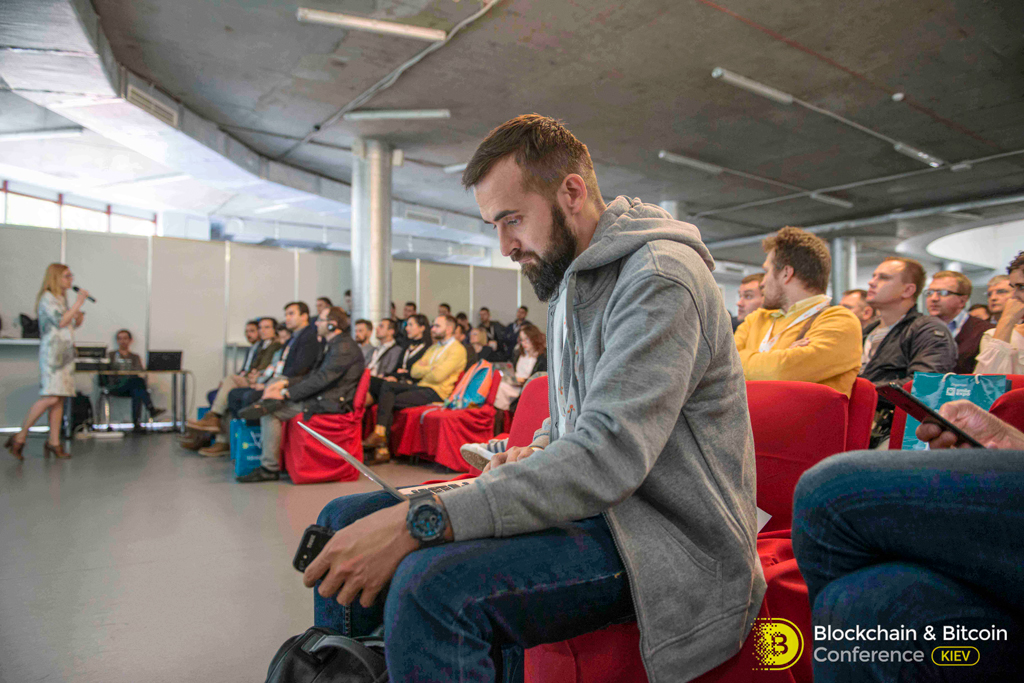
The nearest crypto-event - Blockchain & Bitcoin Conference Moscow - will be held November 15-16.
All Articles